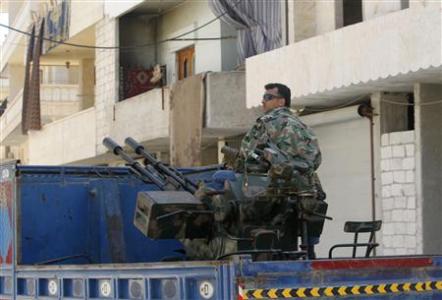Russia, which has protected Assad diplomatically since the Syrian uprising erupted in March 2011, said it would deliver an advanced S-300 air defense system to Damascus despite U.S., French and Israeli objections, arguing that it would help deter "hotheads" intent on intervention in the conflict.
Moscow also accused the European Union of "throwing fuel on the fire" and "undermining" the chances of holding a peace conference at Geneva by letting an arms embargo on Syria expire.
France and Britain, the EU`s strongest military powers and most ardent advocates of scrapping the embargo, said they had not yet decided to arm Syrian rebels, but wanted to put Assad under pressure to negotiate.
"Our focus in the coming weeks is the Geneva conference," said British Foreign Secretary William Hague. "What this is doing is sending that signal loud and clear to the regime and ... being very clear about the flexibility that we have if it refuses to negotiate."
Russian Foreign Minister Sergei Lavrov said Western powers were putting the very idea of a conference at risk while his deputy, Sergei Ryabkov, defended Moscow`s missile shipment.
"We think this delivery is a stabilizing factor and that such steps in many ways restrain some hotheads," he said.
The S-300s can intercept manned aircraft and guided missiles and their delivery could improve Assad`s chances of retaining power. Western nations criticize such arms deliveries in much the same terms as Moscow assails weapons supplies to rebels.
Israel`s defense minister said the air defense missiles had not yet left Russia, but hinted at military action if they were delivered: "I hope they will not leave, and if, God forbid, they reach Syria, we will know what to do," Moshe Yaalon said.
Despite their differences, the United States and Russia are trying to convene an international conference next month to end a 26-month-old conflict that has killed more than 80,000 people and threatens to ignite wider Middle Eastern confrontations.
But the opposing sides remain far apart on whether Assad should play any role in any political transition - and the main Western-backed opposition has not even said if it will attend.
Diplomats in Geneva said a meeting could be held at the U.N. there on June 15-16 just before the U.S., Russian and EU leaders meet at a Group of Eight summit in Northern Ireland on June 17.
More about:
















































